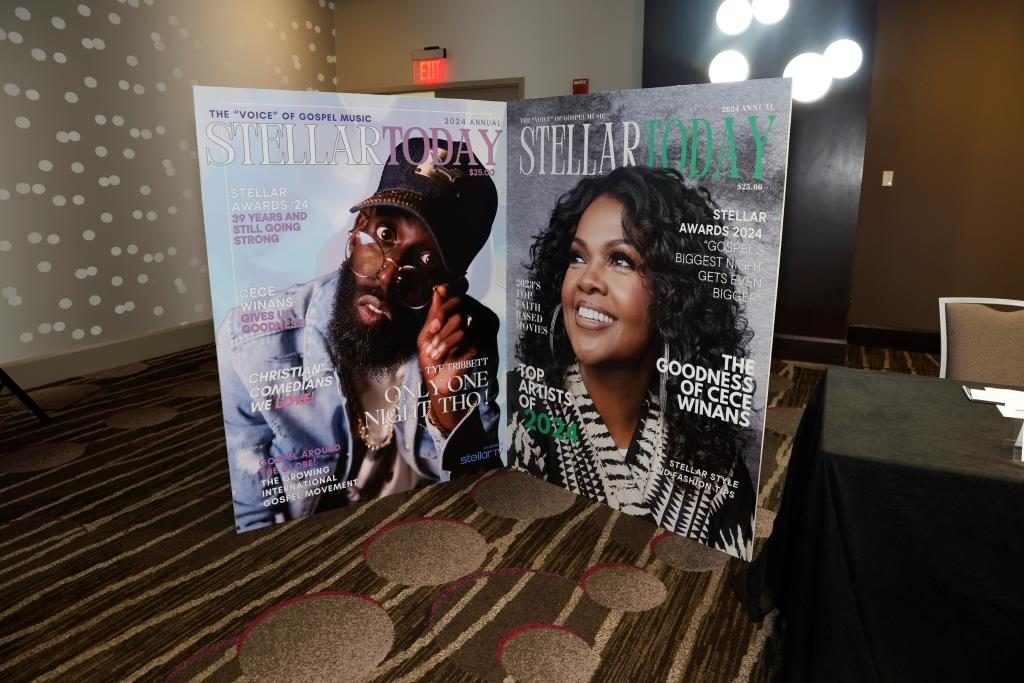The gospel music industry, a vibrant and spiritually resonant sector, stands at a fascinating crossroads. Far from being a niche genre, it is a powerful cultural force that consistently shapes musical trends, inspires millions, and generates significant economic activity. From its deeply rooted traditions to its embrace of cutting-edge digital platforms, gospel music is an ever-evolving entity, reflecting the hopes, struggles, and triumphs of its diverse audience. In recent years, the industry has seen transformative shifts, driven by technological advancements, changing consumption habits, and a renewed emphasis on global reach and artistic diversity.
The Digital Renaissance: Streaming, Social Media, and Direct-to-Fan Engagement
Perhaps the most significant news from the gospel industry, mirroring the broader music landscape, is the complete embrace of the digital realm. The days of solely relying on physical album sales are largely behind us. Streaming platforms like Spotify, Apple Music, YouTube Music, and Pandora have become the primary avenues for discovery and consumption. This shift has had multifaceted impacts:
- Democratization of Access: Independent gospel artists, once limited by geographical distribution and label backing, can now upload their music to a global audience with relative ease. This has led to an explosion of new voices and sub-genres, enriching the overall soundscape.
- Global Reach: A worship song from Nigeria can instantly find an audience in Atlanta, or a traditional choir piece from the U.S. can resonate in South Africa. This unprecedented global connectivity is fostering cross-cultural collaborations and expanding the market for gospel music exponentially.
- Data-Driven Insights: Labels and artists now have access to granular data on listenership, demographics, and engagement, allowing for more targeted marketing and tour planning.
- Monetization Challenges: While reach has increased, fair compensation from streaming royalties remains a contentious issue for many artists, particularly those without major label deals. The industry is continuously exploring alternative revenue streams to supplement streaming income.
Social media platforms, from Instagram and Facebook to TikTok and YouTube, have become indispensable tools for artist engagement. Artists like Maverick City Music have masterfully leveraged platforms like YouTube to build a massive, dedicated following even before traditional radio play. TikTok, in particular, has emerged as a powerful engine for virality, allowing snippets of gospel songs to reach younger audiences and sometimes even cross over into mainstream trends, as seen with numerous worship songs gaining traction as background music for trending videos. Live streams, Q&A sessions, and behind-the-scenes content have forged deeper, more personal connections between artists and their fans, creating a vibrant online community that transcends geographical boundaries.
Artistic Evolution: Genre Blending and Worship’s Ascendance
Gospel music has never been static, constantly absorbing influences from contemporary sounds while maintaining its spiritual core. Recent years have seen an acceleration of this artistic evolution:
- Genre Fusion: The lines between traditional gospel, contemporary R&B, hip-hop, pop, and even rock are increasingly blurred. Artists like Kirk Franklin have long championed this fusion, but today’s landscape features a new generation pushing these boundaries even further. Lecrae continues to bridge the gap between hip-hop and faith, while artists like DOE and Jonathan McReynolds infuse contemporary R&B sensibilities with powerful spiritual messages.
- The Rise of Worship Music: Worship music, particularly the communal, congregational style championed by groups like Maverick City Music, Elevation Worship, and Hillsong, has experienced an undeniable boom. These groups often release live albums, capturing the raw energy and communal experience of worship, and their songs quickly become anthems in churches worldwide. This sub-genre emphasizes accessibility and singability, making it highly effective for global adoption.
- Maintaining Traditional Roots: Amidst the innovation, the power and resonance of traditional gospel remain steadfast. Artists like CeCe Winans, Tasha Cobbs Leonard, and The Walls Group continue to deliver classic gospel sounds with contemporary flair, proving that the foundational elements of powerful vocals, rich harmonies, and profound lyrical messages are timeless. The enduring appeal of gospel choirs and quartets also speaks to this continuity.
This diversity ensures that the gospel industry caters to a broad spectrum of tastes, from those seeking reflective, intimate worship to those desiring upbeat, celebratory sounds that move the body and soul.
Key Players and Industry Infrastructure
The gospel music industry boasts a robust infrastructure, albeit one that is constantly adapting:
- Record Labels: Major labels like RCA Inspiration, Motown Gospel, and Capitol Christian Music Group continue to play a crucial role in artist development, marketing, and distribution. However, the rise of independent labels and artist-owned imprints demonstrates a growing desire for creative control and more equitable profit sharing.
- Awards and Recognition: Prestigious awards ceremonies like the Stellar Awards (focused on Black gospel music), the Dove Awards (catering to Christian and gospel music), and the Grammy Awards (with dedicated gospel categories) serve as vital platforms for recognizing excellence, celebrating achievements, and increasing visibility for artists. These events are not just about accolades; they are also significant industry gatherings, fostering networking and collaboration.
- Concerts, Tours, and Festivals: Live performances remain a cornerstone of the gospel music experience. Artists regularly embark on national and international tours, and major festivals like the Essence Festival, The Merge Summit, and various regional gospel fests provide immersive experiences for fans and crucial revenue streams for artists and promoters. The return of live events post-pandemic has been a significant boost to the industry.
- Radio and Television: While streaming dominates, gospel radio stations (both terrestrial and digital) and television networks like TBN, BET’s Sunday Best, and The Word Network continue to be important vehicles for reaching audiences, particularly older demographics.
Challenges and Opportunities
Like any dynamic industry, gospel music faces its share of challenges and opportunities:
Challenges:
- Monetization of Digital Content: While reach is vast, ensuring artists are fairly compensated for their work in the streaming era remains a pressing issue.
- Maintaining Authenticity: As gospel music becomes more commercialized and crosses over into mainstream charts, there’s an ongoing dialogue about maintaining its spiritual integrity and message.
- Market Saturation: The ease of digital distribution means a crowded marketplace, making it harder for new artists to cut through the noise without substantial marketing and promotion.
- Piracy: Illegal downloading and unauthorized sharing of music continue to pose a threat to artists’ livelihoods.
Opportunities:
- Global Expansion: Untapped markets in Africa, Asia, and Latin America represent immense growth potential. Collaborations with international artists and local language adaptations are key.
- Technological Innovation: Beyond streaming, NFTs (Non-Fungible Tokens), metaverse concerts, and AI-driven music creation offer new frontiers for engagement and monetization.
- Cross-Sector Collaborations: Partnerships with film, television, gaming, and fashion industries can introduce gospel music to new audiences and create diverse revenue streams.
- Community Building: The inherent communal nature of gospel music lends itself perfectly to building strong, engaged fan communities online and offline, which can be leveraged for sustained support and advocacy.
- Social Impact: Gospel music has always been a voice for justice, hope, and social change. There’s a growing opportunity for artists to use their platforms for advocacy, philanthropy, and addressing contemporary societal issues.
The Enduring Message and Future Outlook
At its core, the gospel music industry is powered by a message of faith, hope, and redemption. This spiritual foundation is what distinguishes it and gives it an enduring resonance, even amidst commercial pressures. The news from the gospel industry today is a testament to its resilience, adaptability, and unwavering commitment to its purpose.
Looking ahead, we can anticipate continued innovation in sound, increased global collaboration, and a deepening integration of technology. The industry will likely see more independent artists finding success, more genre-bending experiments, and a continued emphasis on live, immersive experiences. Yet, through all these transformations, the heart of gospel music will remain its profound ability to connect listeners to something greater than themselves, to offer solace in times of trouble, and to inspire joy and celebration. The chorus of gospel music is evolving, but its harmony of hope will undoubtedly continue to resonate across the globe for generations to come.

